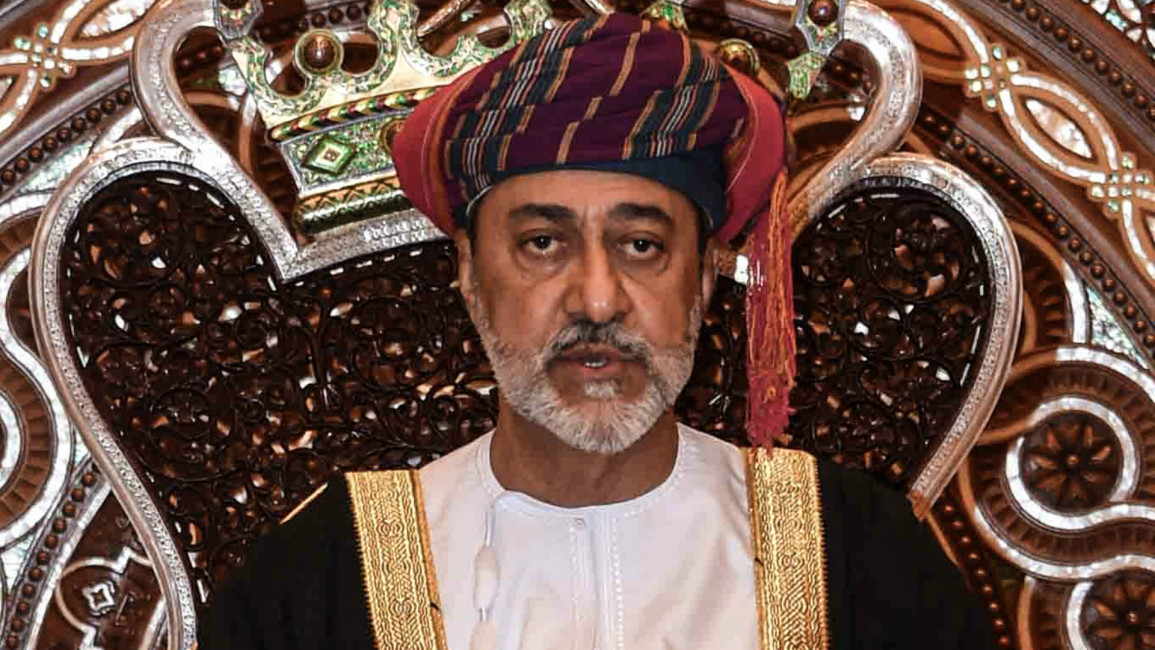Follow us on Facebook, Twitter and Instagram to stay connected
Oman sultan names son as crown prince in major shake-up of constitution
Oman's sultan has named his son as heir and crown prince in a major shake-up of the Gulf state's constitution, which will see the throne passed down to direct descendants of the current ruler.
Sultan Haitham bin Tariq Al-Said made major changes to the sultanate's constitution this week, known as the Basic Law, where he named his eldest son, Dhi Yazan bin Haitham, as crown prince.
A clear line of succession for future sultans was laid out, which will see the throne passed down to Sultan Haitham's son that marks a major shift in the country's Basic Law.
Previously, the appointment of sultans was based on consensus of the royal family or the wishes of the current sultan, rather than a father-to-son succession, as is the case in many other Gulf states.
Article 5 of the Basic Law means that the "system of governance is hereditary in the male descendants of Sultan Turki bin Said bin Sultan", according to a royal decree issued this week.
"The power passes from the Sultan to his first-born son and then to his eldest son and consequently the power transfers to one stratum after another. In case the Sultan's elder son dies before assuming power, the succession should be transferred to his elder son even if the deceased has brothers," the new law states, according to the Oman Observer.
If the first in line for succession has no sons, then "rule automatically shifts to his elder brother".
Some analysts believe that the changes to the succession process will bring further assurances of future stability, with a clear idea of who will inherit the throne after the sultan's death.
Uncertainty surrounded the succession of Sultan Qaboos bin Said - who reigned from 1970 until his death in January 2020 - after no consensus was reached among senior royals on a new ruler.
An envelope that contained a handwritten note by Sultan Qaboos mentioning his preferred successor was then opened.
|
|
It named then-Prince Haitham, Sultan Qaboos' cousin, as the country's new sultan.
The Basic Law also stipulates that the sultan should be "Muslim, mature, rational and the legitimate son of Omani Muslim parents".
Prince Dhi Yazan bin Haitham currently serves as the minister for culture, sports and the youth, although he is not expected to immediately take up additional responsibilities as crown prince.
The law states that new duties will be assigned to him as crown prince and he is also expected to undertake the role of sultan if his father is unable to.
"In case that a temporary hindrance occurred that prevented the Sultan from performing his duties, the crown prince should take over power," the law states.
Sultan Haitham said the new framework will guarantee a "specific and stable mechanism" for the succession process.
The law also states that a Royal Family Council will be formed and "the formulation, specialisations and member priority of which should be determined by a Royal Decree".
There was no further information on the role of this council.
A committee, appointed by the sultan, will also oversee the work of ministers and the government, as well as a state auditor to monitor public entities.
The law also guarantees "the maintenance of the state’s independence and sovereignty", indicating that Oman will continue the policy of neutralityin foreign affairs established under Sultan Qaboos.
On Monday, the Central Bank of Oman issued new banknotes bearing the face of Sultan Haitham.
The release of the 20 rial, 10 rial, five rial, one rial, half-a-rial and 100 baisa notes completes a whole new set of notes that began with a commemorative 50 rial note released in July 2020.
The 50 rial note bears the face of the late Sultan Qaboos, while the 20, 10 and five rial notes feature his successor Sultan Haitham.
Sultan Haitham has made other big changes during his first year as ruler including appointing a new foreign minister who replaced veteran statesperson Yussuf bin Alawi bin Abdullah.



